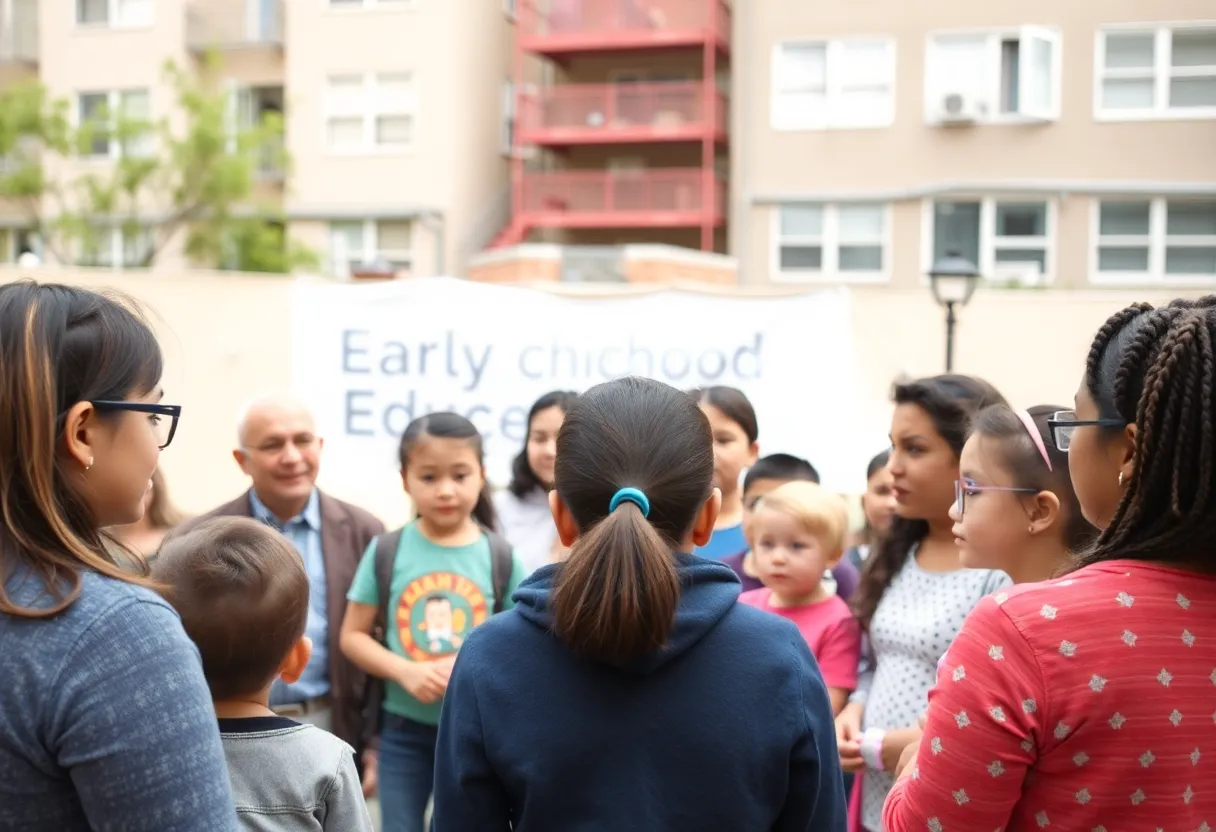News Summary
The Trump administration’s abrupt closure of the Head Start office in New York City has alarmed early childhood education advocates and low-income families. This decision is part of a reduction of regional offices that raises concerns about support for child care programs. Families fear losing access to affordable child care as educational leaders express worries about the future stability of essential services that support vulnerable children.
New York City Head Start Office Closure Raises Alarm for Low-Income Families
In a move that has sent shockwaves throughout the early childhood education community, the Trump administration has made the surprising decision to close the federal Head Start office in New York City. This closure is part of a broader initiative that has seen half of the regional offices of the Office of Head Start shut their doors, leaving educational leaders and advocates worried about the future of child care for families in need.
Impact of Office Closures
The closing of the New York office has not just resulted in a loss of oversight for Head Start programs in New York and New Jersey; it has also led to significant layoffs. In cities like Boston, Chicago, San Francisco, and Seattle, families could feel the effects of these cutbacks as local programs struggle to adapt without the vital support that regional offices previously provided. Federal health officials have asserted that this consolidation is aimed at saving taxpayer dollars, but many in the early education sector fear that vital services will crumble as a result.
Leaders in the preschool community have expressed deep concerns regarding how these closures will affect their programs. With the absence of staff from the regional offices, connecting with necessary resources will become a significant hurdle. Early childhood programs often rely on these offices for crucial functions such as curriculum development, enrollment processes, and grant management. Without this support, many fear that operations could suffer substantially.
A Challenge for Families
Bedford Stuyvesant Early Childhood Development Center has already reported challenges in accessing support from the now-defunct regional offices. Funding uncertainties have only added to the stress for administrators who work hard to sustain their programs. Meanwhile, families who depend on these services face growing anxiety about whether they will have access to the affordable child care they desperately need.
It’s important to note that the Head Start program launched over 60 years ago as a federal initiative aimed at combating poverty. It serves low-income families, particularly those with a household income of less than $41,795. However, even if the intention of the closures was to tighten budgets at the Department of Health and Human Services (HHS), the tangible consequences could lead to worse educational outcomes for vulnerable populations.
Essential Services at Risk
Stakeholders are stepping forward to voice their concerns regarding the potential impact on child safety and development. Early childhood advocates warn that the changes in oversight might make it more challenging to provide essential services and support for children. With the administrative restructuring reducing the number of regional offices from ten to five, many are skeptical about whether families will truly see no impact on support.
The challenges don’t stop there. The Trump administration’s freeze on funding for many agencies initially raised alarms, but the clarification that Head Start would remain exempt did little to ease fears. Many local programs still encountered difficulties in accessing necessary funds, which greatly complicates day-to-day operations.
What Lies Ahead?
As federal lawmakers consider budget cuts affecting low-income families and child care programs, early childhood advocates stress the need for stability in funding to secure affordable care for those in need. The dire potential for mass layoffs and the shuttering of offices raise questions about the future of Head Start, which currently serves around 778,420 children and pregnant individuals with a significant annual budget of $11.5 billion.
Looking forward, advocates are pressing for measures that would ensure ongoing funding for child care and early education initiatives. The looming instability makes it more important than ever to support programs that serve vulnerable populations and contribute to the healthy development of young children.
In a city as vibrant as New York, families need dependable resources to help navigate the challenges of child care. The closure of these vital offices has created an unsettling uncertainty for parents and children alike, and the community is watching closely as the situation unfolds.
Deeper Dive: News & Info About This Topic
HERE Resources
New York City Faces Public Health Job Cuts Amid Funding Crisis
Eric Adams Runs as Independent in NYC Mayoral Race
NYC Subway Map Unveils New Look After 50 Years
New York Hosts the 65th International Antiquarian Book Fair
New York City’s Live Music Scene Revives with Sofar Sounds
New York City Grapples with Increasing Restaurant Closures
Spring Celebrations: Events and Festivals in NYC for April 2025
NYC Expands Red Light and Speed Camera Programs
Audition Opportunity for Aspiring Actors in NYC
Additional Resources
- New York Daily News
- Wikipedia: Head Start
- K-12 Dive
- Google Search: Head Start program
- ABC News
- Google Scholar: Head Start
- Seattle Times
- Encyclopedia Britannica: Head Start program
- MassLive
- Google News: Head Start office closures








